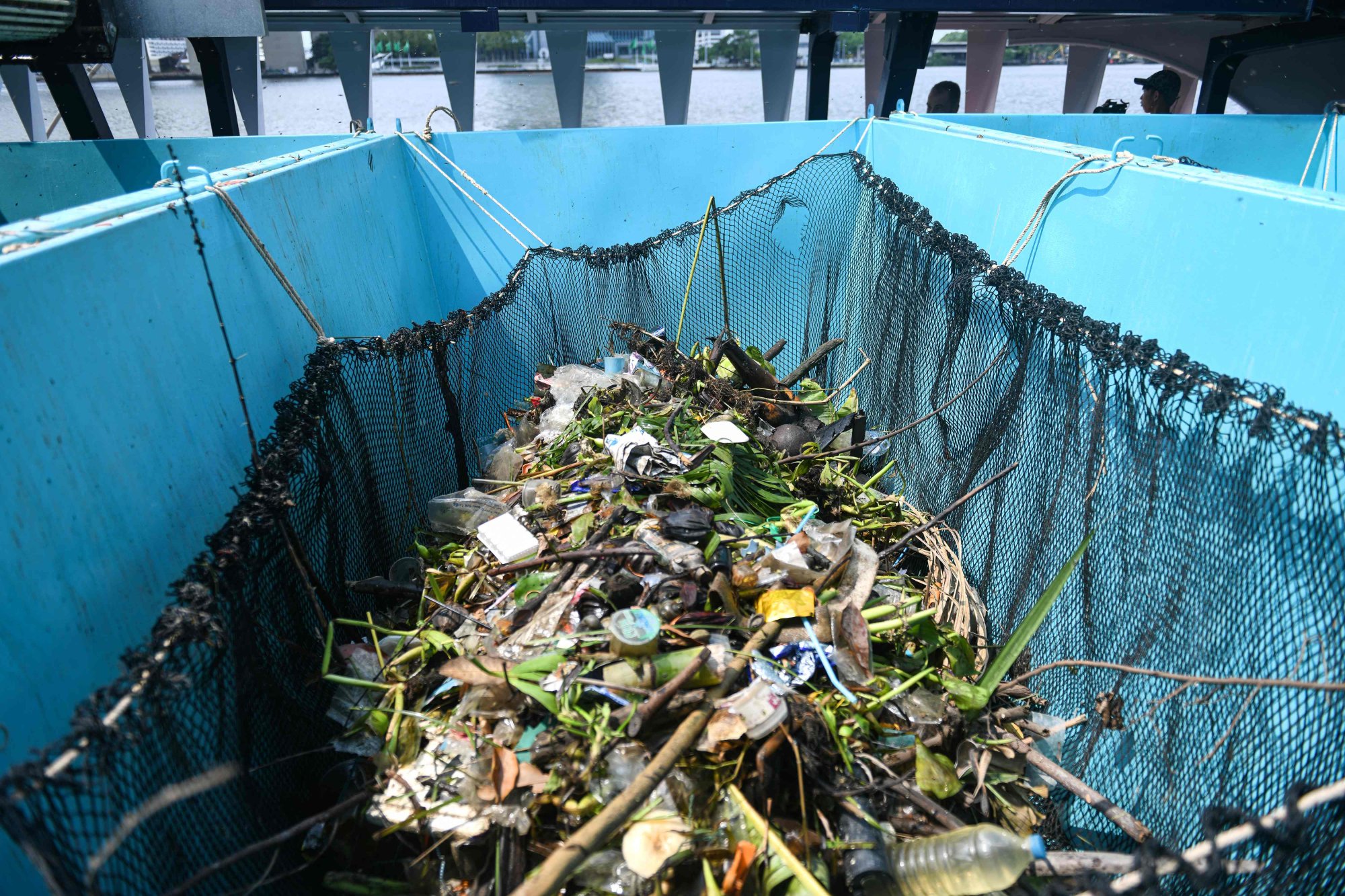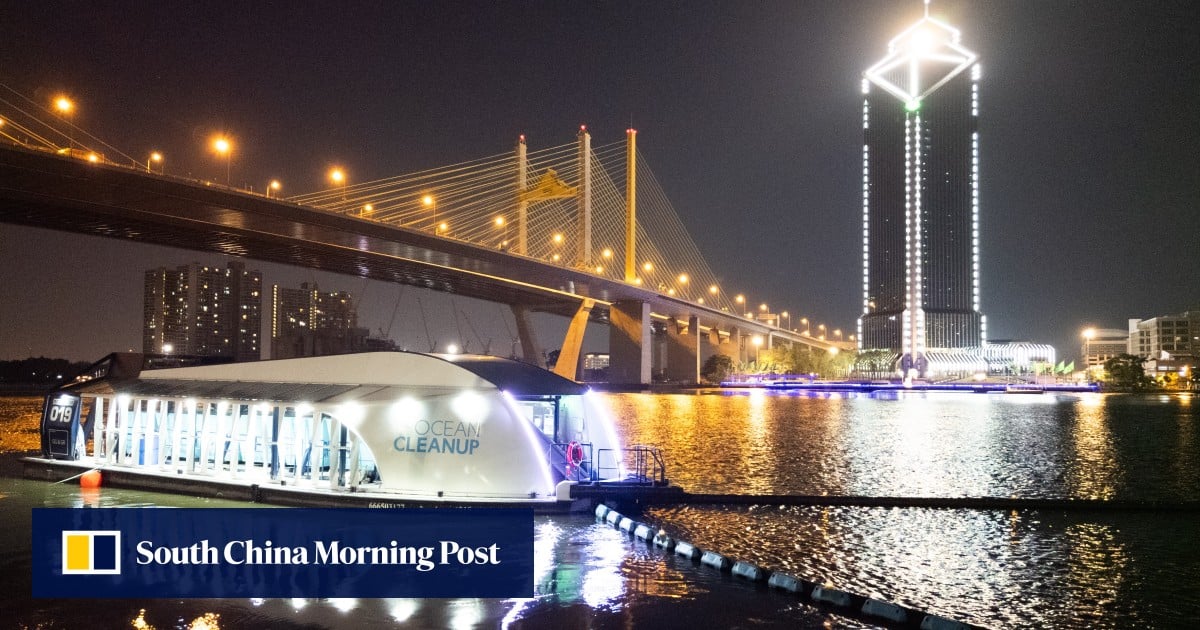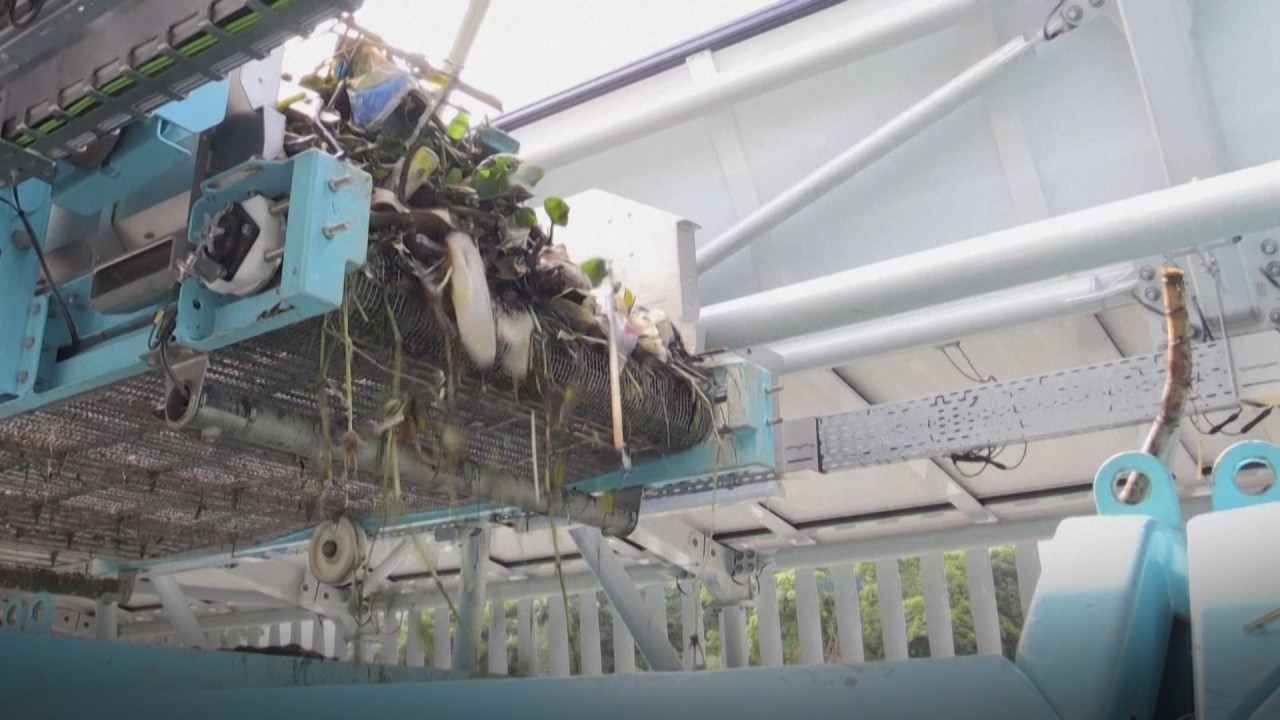Bangkok’s rubbish-clogged Chao Praya river is poised to become a little healthier after non-profit organisation The Ocean Cleanup deployed an ‘Interceptor’ craft to sift out as much as 1.5 tonnes of trash per day that would otherwise flow into the Gulf of Thailand.
Despite colour-coded recycling bins and well-organised facilities in the Thai capital, plastic funnels into the Chao Praya from multiple adjoining canals and waterways. Once it reaches the Gulf it is eaten by marine life or returns to the shore as debris and microplastics that embed themselves in the food chain.
The Ocean Cleanup officially launched the Interceptor – a floating, solar-powered rubbish sorter with bins to take away the river’s trash for recycling or proper disposal – 50km away from the river’s mouth at the Gulf.
“Our mission is to rid the world’s oceans of plastic and to do that we need to tackle the 1 per cent of the most polluting rivers on Earth that are jointly responsible for about 80 per cent of all the plastic that flows into the ocean,” The Ocean Cleanup’s founder Boyan Slat told This Week in Asia. “That includes the Chao Praya in Bangkok.”
Interceptors, which use wide booms that are able to funnel waste into a sorter in tidal rivers, have already been deployed in Kuala Lumpur and Jakarta.
‘Death is everywhere’: in Malaysia, a toxic river haunts sick children
‘Death is everywhere’: in Malaysia, a toxic river haunts sick children
Slat soared to fame through a viral TedTalk over a decade ago as an impassioned 18-year old diver and environmentalist and has since won the backing of global brands from band Coldplay to Coca-Cola.
He said the Interceptor in Bangkok should be able to handle between half a tonne and 1.5 tonnes of trash a day.
“It really depends on the conditions,” he said. “In some other rivers that we are deployed in it fills really quickly so in [Klang river in] Malaysia, the record is filling it up in one and a half hours, six tonnes in one and half hours, which is insane.”
Its deployment of a single Interceptor in Bangkok’s Chao Praya river is being hailed as the start of a wider clean-up operation for the lifeline waterway, which bustles with commercial, tourism and leisure vessels
“The Gulf of Thailand is a very important ecosystem, with rich coral reefs and is important for tourism and fisheries,” Slat said.
“The Interceptor here is poised to collect thousands of tonnes of trash over the next few years, but this is really just the beginning … to fully tackle plastic pollution flowing through the Chao Praya multiple interception points are required.”
The river has been slowly receiving a makeover, with more walkways and tourism encouraging city officials to push for a cleaner waterway.

Bangkok’s governor, Chadchart Sittipunt, backed The Ocean Cleanup to both help better manage the city’s waste and inspire change.
“By reintegrating these valuable plastics into the cycle and segregating other wastes, it thereby helps reduce the need for virgin plastic and mitigating the flow of waste into the ocean,” he said.
The carcasses of dolphins, turtles and endangered dugongs have all been found with their insides stuffed with plastic bags, nets and bottle tops, while high rates of microplastics have been found in many Gulf of Thailand’s coastal areas.
A World Bank study in 2022 warned that despite Thailand’s mitigation efforts “plastic waste leaking into the marine environment remains a significant problem”.
Thailand’s smog-choked Chiang Mai tops world’s most polluted cities
Thailand’s smog-choked Chiang Mai tops world’s most polluted cities
The Thai government has a road map to 2030 that aims to reduce plastic waste by reducing production and use of single-use plastics and containers, and managing the waste produced through recycling and disposal that does not allow it to leak into surrounding rivers and seas.
But the World Bank report said high rates of recycling and collection could not prevent nearly 430,000 tonnes of plastic waste being produced each year – especially upcountry where disposal and recycling facilities are threadbare – much of it to be washed into rivers and other water sources.

